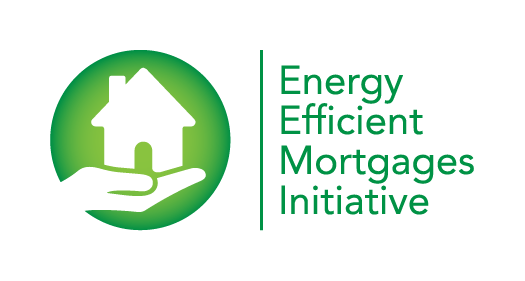
PRESENTING THE ENERGY EFFICIENT MORTGAGES INITIATIVE
7 September 2021
Climate change indiscriminately affects every region of the planet and therefore calls for a global and com- prehensive approach, one that the EU can help to lead. Despite the challenge represented by the COVID-19 pandemic and the resulting economic crisis, which has required gigantic efforts by both national and European policymakers over the last two years, the European Institutions have set highly ambitious targets to fight climate change, seeking to turn the Old Continent into the first carbon-neutral economic area by 2050.
However, this overarching EU approach necessitates the involvement of civil society and enterprises as well, which cannot achieve the required environmental outcomes without institutional support. As remarked by European Commission President, Ursula Von der Leyen, in her speech on 9 May 2021 launching the Conference on the future of Europe, European citizens’ contributions are crucial to address fundamental issues such as health, good and sustainable jobs, and climate change in a more and more digital economy, in order to shape the Europe they want to live in.
At this unprecedented time, civil society is called to action to design and shape a better future for the next generations. The European Mortgage Federation-European Covered Bond Council (EMF-ECBC) wants to be part of this democratic debate as the voice of an Industry representing c. 50% of EU GDP and playing a crucial role in the current socio-economic landscape. In its role as a trade association, the EMF-ECBC supports the daily lives of millions of citizens, by promoting social bonds through sustainable mortgages and, more importantly, the democratic process of national and European legislators in shaping the regulatory environment where the opportunities for citizens and businesses are built.
This democratic exercise will guide society out of the current crisis, support the climate transition and implement a new economic paradigm. The Conference on the future of Europe is furthermore intended to continue the democratic journey towards peace and prosperity, started 71 years ago with the Schuman Declaration.
In this context, the EU is committed to reduce its own primary energy consumption by 32% by 2030, as wit- nessed with the adoption of the Green Deal in 2019, further complemented in October 2020 with the Renovation Wave Strategy and, in April 2021, with the EU Taxonomy. Both the latter provisions encompass the building sector, globally identified as one of the main producers of CO2 emissions. Nevertheless, these legally enshrined efforts need to be supported by adequate funding schemes as the scale of investment required to meet the energy savings targets alone is estimated at €180 billion p.a., three-quarters of which is accounted for by energy efficiency in buildings.
Moreover, within this framework, the financial services sector covers a non-secondary position considering that the achievement of sustainability by the Industry has a crucial role in the transition to a climate-neutral economy. In particular, the mortgage credit sector has the potential to play a transformative role in relation to the attainment of the 2050 emissions targets for both the building and financial sectors.
This is precisely what the EU-funded Energy Efficient Mortgages Initiative (EEMI), launched five years ago, has been doing, by establishing a comprehensive ecosystem around Energy Efficient mortgages through a pan- European market-led initiative, bringing together lending institutions, investors, utilities, and public authorities. The Initiative covers the whole scope of action in the energy efficiency improvement process, for the benefit of citizens, enterprises and broader society.
Indeed, since 2016, the EEMI, which comprises three inter-linked EU-funded Horizon 2020 Projects (see below) and is coordinated by the EMF-ECBC, has been leading market efforts together with a consortium of expert partners. With the EU’s households and businesses at its heart, the Initiative delivers the capabilities to sup- port the financing of the renovation of the EU’s building stock, 35% of which is over 50 years old and almost 75% of which is energy inefficient.
More specifically, the EEMI is divided into three projects, comprehensively matching the European Commission’s own framework for climate and energy policies. The Initiative began with the Energy efficient Mortgages Action Plan (EeMAP), was followed by the Energy efficient Data Protocol and Portal (EeDaPP) and continues today with the Energy efficient Mortgage Market Implementation Plan (EeMMIP). Together, these projects represent the kingpins of the EMF-ECBC’s mission: to finance the greening of the aging European building stock. This goal will be reached by providing, respectively:
- an effective and functional ecosystem aimed at creating an energy efficient mortgage through which homebuyers are incentivised to improve the energy efficiency of their home or acquire an already energy efficient property by way of favourable conditions linked to the mortgage;
- a large-scale, financial standardised data protocol related to energy efficient mortgages, accessible through a common, centralised portal, which allows empirical demonstration of the negative correlation between energy efficiency and risk; and
- an implementation plan aimed at permitting the project to be operational by delivering an integrated market in energy efficient mortgages and a blueprint for established and emerging markets around the
Alongside the EEMI, the Energy Efficient Mortgage (EEM) Label is a new quality instrument allowing transpar- ent identification of energy efficient mortgages for market stakeholders. The Label was launched in February 2021, with the support of the European Commission and denotes a further effort that the EMF-ECBC is making towards the sustainable finance and real estate/building sectors, in compliance with the EU legal framework. Indeed, the Label allows easier access to energy efficiency financing, green bond markets, better tracking of EEM performance, provides greater transparency of climate risks and portfolio resilience, and fights greenwashing. The Label enables lending institutions that are committed to continuous progress and improvement initiatives to disclose energy efficiency related data through the Label’s Harmonised Disclosure Template (HDT), and thereby jumpstart the investment and mortgage market for energy efficiency finance.
Ultimately, drawing on the extensive experience of the Covered Bond Label, the EEM Label is proposed as a market intervention to support recognition of and confidence in energy efficient mortgages, and facilitate access to relevant, quality, and transparent information for market participants. The Label relies on the EeDaPP data protocol to develop a harmonised disclosure template for the disclosure of mortgage products compliant with the Label criteria. The effort in creating a standardisation would in due course facilitate investors’ ESG due diligence and enhance overall transparency in the EEM and bond markets.
By Cristina Costa, Société Générale and EMF-ECBC Secretariat
Sitemap
Copyright © Energy Efficient Mortgages Initiative


The project DeliverEEM has received funding from the European Union’s LIFE 2023 programme under grant agreement No.101167431. The EeMAP, EeDaPP, EeMMIP projects have received funding from the European Union’s Horizon 2020 research and innovation programme under grant agreements No. 746205, No. 784979 and No. 894117 respectively
Privacy Overview
| Cookie | Duration | Description |
|---|---|---|
| cookielawinfo-checkbox-analytics | 11 months | This cookie is set by GDPR Cookie Consent plugin. The cookie is used to store the user consent for the cookies in the category "Analytics". |
| cookielawinfo-checkbox-functional | 11 months | The cookie is set by GDPR cookie consent to record the user consent for the cookies in the category "Functional". |
| cookielawinfo-checkbox-necessary | 11 months | This cookie is set by GDPR Cookie Consent plugin. The cookies is used to store the user consent for the cookies in the category "Necessary". |
| cookielawinfo-checkbox-others | 11 months | This cookie is set by GDPR Cookie Consent plugin. The cookie is used to store the user consent for the cookies in the category "Other. |
| cookielawinfo-checkbox-performance | 11 months | This cookie is set by GDPR Cookie Consent plugin. The cookie is used to store the user consent for the cookies in the category "Performance". |
| viewed_cookie_policy | 11 months | The cookie is set by the GDPR Cookie Consent plugin and is used to store whether or not user has consented to the use of cookies. It does not store any personal data. |
